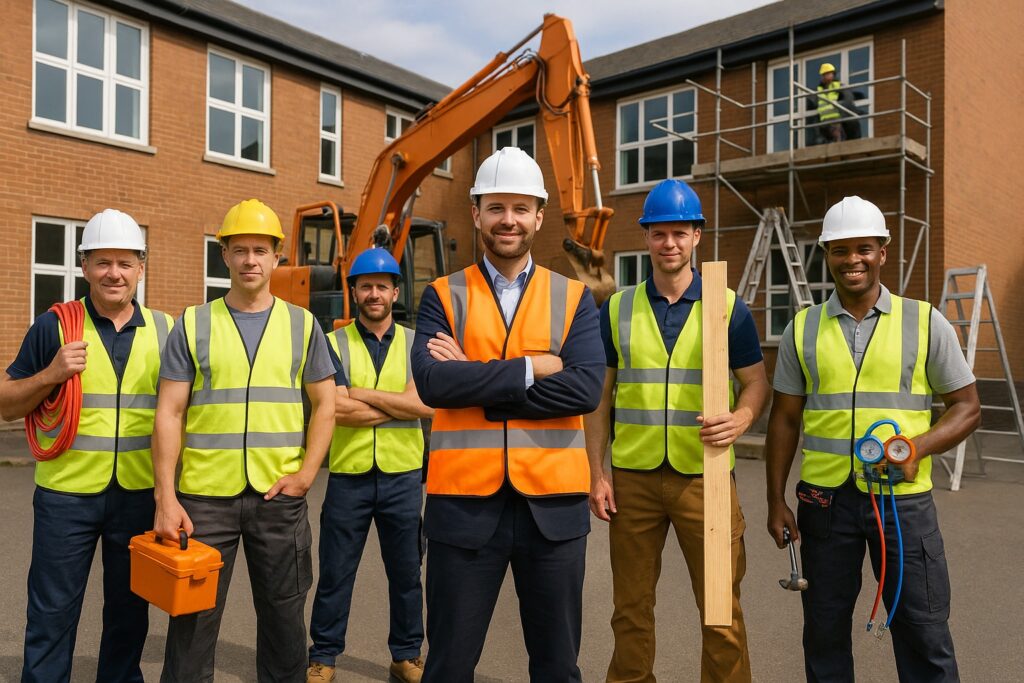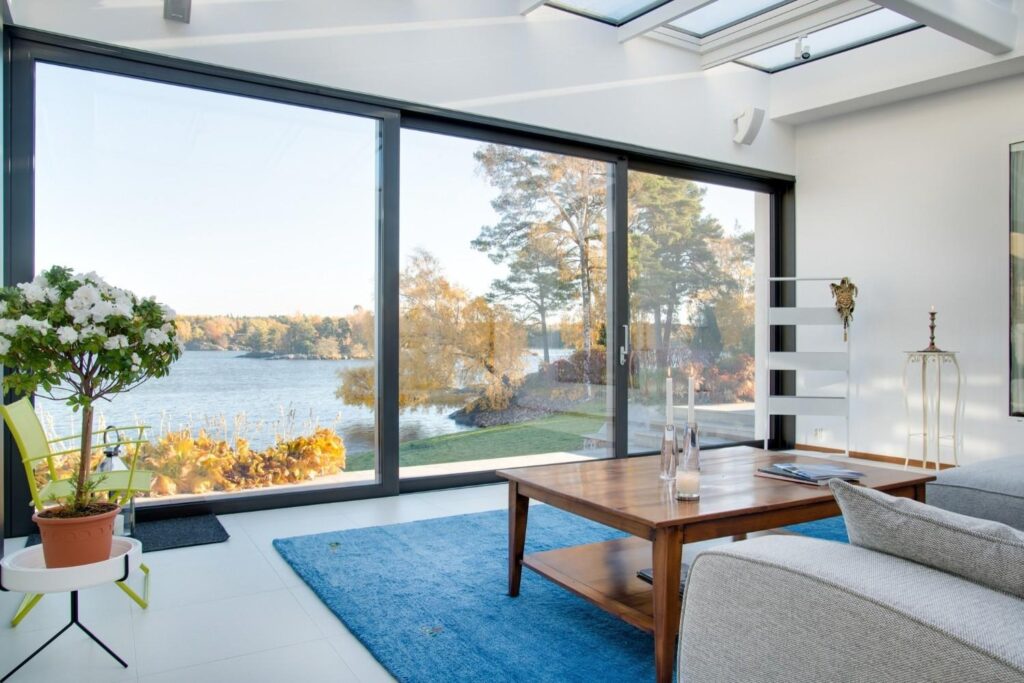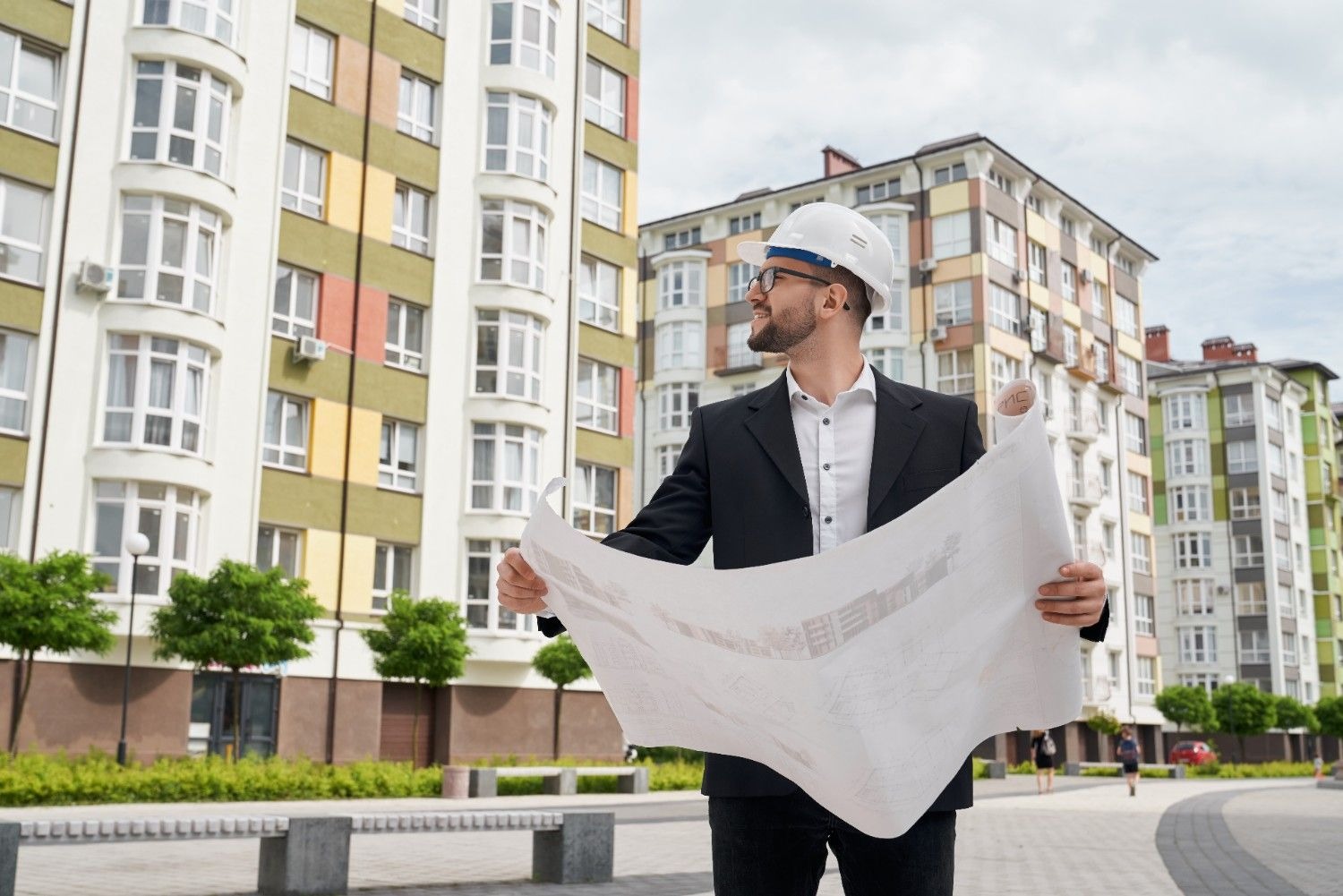Sustainable construction has become a crucial part of modern building practices, and building contractors play an essential role in ensuring these practices are successfully implemented. From using eco-friendly materials to reducing waste and optimising energy efficiency, the contribution of contractors to sustainability goes beyond simply following guidelines. They are pivotal in shaping a greener, more environmentally responsible future for the construction industry.
Introduction to Sustainable Construction
Sustainable construction refers to the design, construction, and operation of buildings in a way that minimises their impact on the environment. This approach includes the use of renewable resources, energy-efficient techniques, and waste reduction. The increasing global focus on climate change and environmental degradation has made it more important than ever for construction practices to evolve and become more sustainable.
Building contractors in Cardiff are instrumental in bringing sustainable construction practices to life. Their role goes beyond mere implementation—they are responsible for integrating green technologies, ensuring environmental compliance, and working with architects to design structures that are both functional and eco-friendly.

Key Sustainable Practices in Construction
Green Building Materials
The use of eco-friendly materials is a cornerstone of sustainable construction. Contractors are increasingly sourcing materials that are durable, renewable, and have minimal environmental impact. Materials such as bamboo, recycled steel, and low-carbon concrete are gaining popularity because they reduce carbon footprints and promote the use of renewable resources.
Contractors also focus on sourcing locally available materials to reduce transportation emissions, further improving the sustainability of a project.
Energy Efficiency in Construction
Energy efficiency is another significant focus of sustainable building practices. Contractors ensure that the structures they work on are designed to consume less energy over their lifespans. This includes the use of proper insulation, efficient windows, and passive solar design techniques that make the most of natural light and heat.
Moreover, sustainable buildings often incorporate renewable energy sources, such as solar panels or wind turbines, which reduce the reliance on non-renewable energy sources and help cut down on operating costs.
Water Conservation Techniques
Water conservation is increasingly becoming a key consideration for building contractors. In areas with limited water resources, contractors are installing low-flow faucets, water-efficient toilets, and rainwater harvesting systems to reduce consumption.
Sustainable construction sites also employ sustainable drainage systems that manage stormwater and prevent flooding, which can be both environmentally beneficial and cost-effective for property owners in the long run.
Building Contractors and Their Role in Sustainability
Planning and Design Collaboration
One of the most critical contributions of building contractors to sustainability is their collaboration with architect in Cardiff from the earliest stages of a project. By working closely together, they ensure that sustainability is integrated into the design and planning phases, preventing costly retrofitting or adjustments later on. This collaboration can help ensure that the design not only meets the client’s needs but also follows the best sustainable practices available.
Construction Techniques That Promote Sustainability
Contractors are at the forefront of adopting innovative construction techniques that reduce waste and energy consumption. The use of prefabricated and modular components has significantly reduced the amount of on-site construction waste and shortened project timelines.
Additionally, advanced technologies like 3D printing in construction are emerging as ways to create more precise, material-efficient structures. These techniques minimise waste, reduce the carbon footprint of projects, and increase the overall efficiency of the construction process.
Adopting Sustainable Site Management Practices
Managing construction sites with sustainability in mind is essential for reducing environmental impact. Building contractors take steps to limit the disruption to local ecosystems, reduce dust and pollution, and ensure the proper disposal and recycling of materials.
From using eco-friendly construction equipment to implementing waste management plans that reduce landfill waste, contractors are key to maintaining the sustainability of a construction site throughout the building process.
Challenges in Sustainable Construction
Financial Barriers
Although the long-term benefits of sustainable construction practices are well-documented, the initial investment required can be a barrier for many projects. Sustainable materials and technologies can often come at a premium, and contractors must work closely with clients to ensure the financial viability of green building practices.
Regulatory Compliance
As governments worldwide implement stricter environmental regulations, building contractors must stay updated on local, national, and international guidelines for sustainable construction. Navigating these regulations can sometimes slow down a project or increase costs, but it’s an essential aspect of ensuring that a project meets the required sustainability standards.
Skilled Workforce Availability
Sustainable construction practices require a skilled workforce that is knowledgeable about the latest green building techniques and technologies. Building contractors often face challenges in finding workers who are trained in these specialised areas, but as demand for sustainable construction rises, the industry is increasingly investing in education and training programmes.

The Future of Sustainable Construction
Advancements in Building Materials
The construction industry is evolving, and new materials are constantly being developed to make buildings more sustainable. Innovations such as self-healing concrete, which can repair cracks on its own, and recycled plastic bricks that reduce waste, are paving the way for the future of green building.
Contractors are at the forefront of testing and integrating these materials into new construction projects, driving the industry towards even greater sustainability.
The Growing Demand for Green Buildings
Consumer demand for green buildings is rising, and this shift is pushing contractors to focus more on sustainability. With increased awareness of environmental issues, many homeowners and business owners are prioritising eco-friendly buildings that offer lower operating costs and environmental impact.
Role of Building Contractors in Shaping a Sustainable Future
Building contractors play a pivotal role in shaping the future of sustainable construction. Their hands-on involvement in the construction process, coupled with their expertise in green building practices, allows them to influence the overall sustainability of a project. By adopting the latest techniques and materials, contractors can help drive the transition to a more sustainable future for the construction industry.
Conclusion
Building contractors are not just workers; they are critical players in the movement toward sustainable construction. By incorporating eco-friendly materials, optimising energy usage, and promoting efficient building practices, contractors help minimise the environmental impact of construction projects.
For companies like AO Builders Cardiff, the commitment to sustainability is at the core of every project. As the demand for green building practices continues to grow, the role of contractors will only become more essential in creating a greener, more sustainable built environment.


